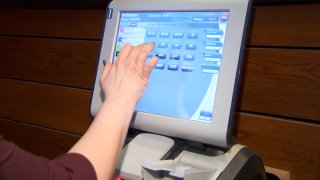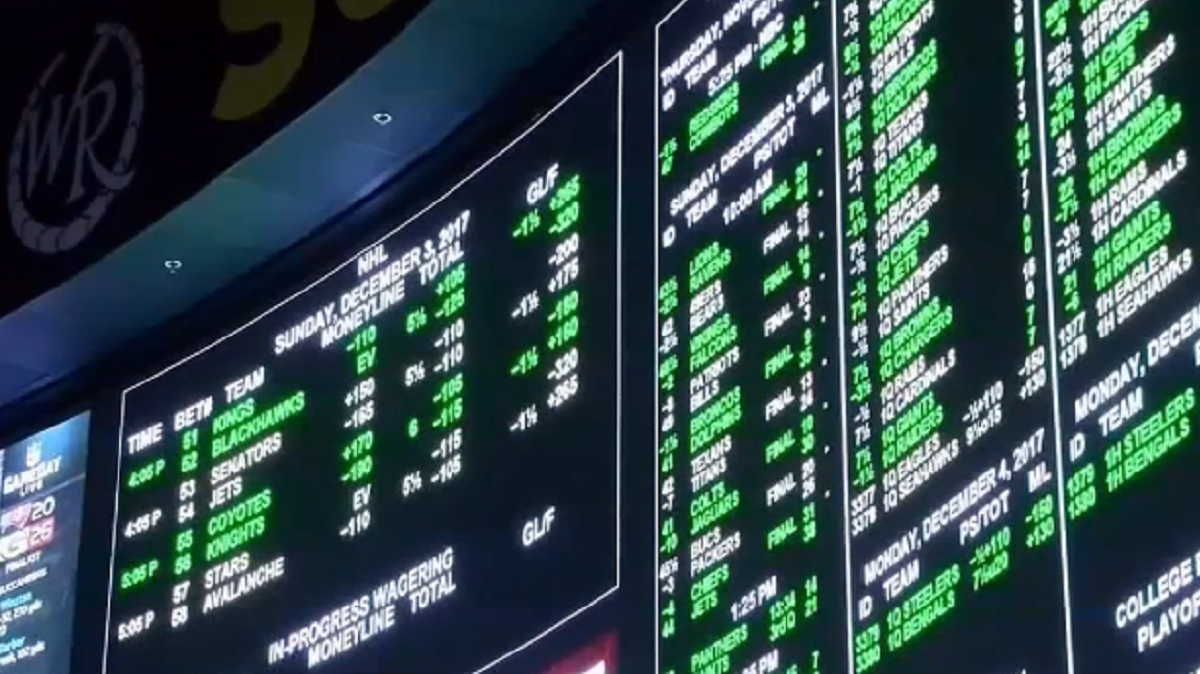
Nearly every online sports betting company that gave the Massachusetts Gaming Commission its opinion during a roundtable Thursday said it would be OK with in-person sports betting starting before mobile or online wagering with one glaring exception: Boston-based DraftKings, which said it would rather see all operators go live on the same date.
The Gaming Commission has said it wants to implement legal sports betting here without unnecessary delay but also without sacrificing its commitment to consumer protection and gaming integrity. But in the six weeks since Gov. Charlie Baker signed the state's betting law and as eager bettors clamor for action, regulators have run into some significant hurdles that could complicate their efforts.
To gather more info on two of their most pressing questions, the regulators invited companies that have signaled an intent to apply for one of the state's seven mobile-only betting licenses to a roundtable and asked each: How should the commission approach a temporary license structure in the law that could mean the universe of mobile betting platforms would start in the dozens and then be scaled back to just seven outlets, and should the commission launch all betting operations at the same time or stagger the launch in some way?
The operators who shared their thoughts ranged from big industry players like DraftKings and FanDuel to lesser-known outlets like Betr and BetFred. And while the operators were not in total agreement on anything, the commissioners picked up on the fact that nearly all said they would be agreeable to an approach in which the commission would get in-person betting up and running before launching mobile and online wagering.
Get Boston local news, weather forecasts, lifestyle and entertainment stories to your inbox. Sign up for NBC Boston’s newsletters.
"I don't think I heard anybody say that they would be against that. So I want to be very clear, that's what I heard today," Commissioner Brad Hill said. "The comments that I heard are telling me that everybody is OK if we were to do something like that."
Only one company objected to Hill's characterization. Boston-based DraftKings said that it would prefer for the commission to green light both retail and mobile betting on the same day.
"Other states have been able to go live with both products at the same time and we would submit that we believe that the commonwealth can do the same," Chris Cipolla, senior director of government affairs for DraftKings, said. "And under ideal circumstances, it is most equitable, in our opinion, to allow all verticals to go live the same" time.
Launching retail and mobile betting at the same time could potentially mean betting gets started later than it would if the commission were to allow retail operators to go first. That's because the only companies eligible for in-person betting licenses are the casinos, slots parlor and simulcast centers that the Gaming Commission already licenses. Commissioners have already said they think it makes sense to get retail up and running first.
Most of the prospective retail betting licensees were in agreement Thursday around the idea of one common start date for all in-person betting.
Chris Carney, the owner of Raynham Park, said his organization would like to see the Gaming Commission set April 1, 2023 as the official start date for all retail betting. Raynham Park, Plainridge Park Casino in Plainville, MGM Springfield, Encore Boston Harbor in Everett and Suffolk Downs in East Boston are eligible to seek a retail betting license.
The parent companies of Plainridge Park and Encore wrote to the commission that they support a tiered rollout in which retail operators would go first, then the mobile operators whose licenses are tethered to the retail operators, and then the standalone or untethered mobile betting platforms.
"Within each phase, qualified entities should have the opportunity to launch on the same day, if all Commission requirements are met. This approach provides guidance to operators and the public while managing expectations and preserving the interests of operators, patrons, and the Commonwealth as a whole," Penn Entertainment and Wynn Resorts wrote.
There was far less agreement Thursday on how the commission should handle the law's temporary licensing provision. Because the Legislature capped the number of final untethered mobile licenses at seven but did not limit the number of temporary licenses available, the commission is concerned about the potential that dozens of operators would qualify for temporary licenses that could last up to a year, begin taking bets in Massachusetts, and then have to shut down once the seven final mobile-only licensees are chosen.
More on sports betting
That scenario, Chairwoman Cathy Judd-Stein said Thursday, "could ultimately require an early dismantling process of ongoing betting operations, even those that are superior, that could lead to significant destabilization of this new industry that all wish to see launched with excellence and integrity and in a timely manner." She also said that she thinks the mismatch in the legislation was "an inadvertent development."
The Legislature, which rushed through its sports betting legalization bill during an all-night session on July 31, has publicly shown no interest in stepping in to give the commission more specific directions. The operators who spoke Thursday, however, were full of ideas.
In their letter to the commission, Penn and Wynn said they "do not believe that the legislature intended to authorize any more temporary licenses to be granted than permanent licenses" and that they "are unaware of any other jurisdiction that has allowed for the number of temporary licenses issued to exceed the capped number of permanent operators set forth in legislation."
The casino companies said they interpret the law to allow for a competitive selection process "outside of -- and more precisely before -- the licensing process" for untethered mobile-only operators. "Such competitive process can occur, the winners can be chosen, and subsequently, those winners can apply for both temporary and permanent licensure," the companies said.
Executive Director Karen Wells threw some cold water on that idea late in the meeting when she pointed out that running a competitive selection process for temporary licenses would add work to the commission's timeline and make the process of launching betting take longer.
Get updates on what's happening in Boston to your inbox. Sign up for our News Headlines newsletter.
Other operators similarly suggested that the Gaming Commission merely issue only seven temporary licenses, but Judd-Stein said she is not certain that is even an option.
"The option or the idea of a competitive process for the temporary [licenses] has come up, you've heard it at our earlier meetings. But legally, it's not clear whether we could offer that," she told reporters after the meeting Thursday. The chairwoman added, "If that was really what we wanted to engage in, it would require a legislative fix."
Most of the industry representatives seemed to agree with Judd-Stein and other commissioners that the thought of forcing companies with temporary licenses to cease operations for no reason other than their failure to secure one of seven final licenses was untenable.
Cory Fox, FanDuel's vice president of product and new market compliance, said that a sports betting operator's investment in year one of a new market is designed to "pay out" over several years and that it would be difficult for an operator to make that kind of commitment not knowing if they will be in the market for the long term.
"A successful launch of sports wagering requires a significant investment of time and resources by the operator to make sure that they are creating a customized product for the specific state where they're launching, as well as by the commission to make sure that the product that's being launched is appropriate and meets the regulatory guidelines for that state. We don't think it's an effective use of resources by operators or by the commonwealth to offer more temporary licenses than there can be final licenses, given the significant investments by both the operator and the commission," he said. The commission did not take any action or make any formal decisions Thursday. Judd-Stein said commissioners are likely to follow up with the companies that shared their thoughts and said the commission is busy taking "lots of steps toward developing a timeline" so betting companies and bettors will have a more clear sense of when wagers might begin.


